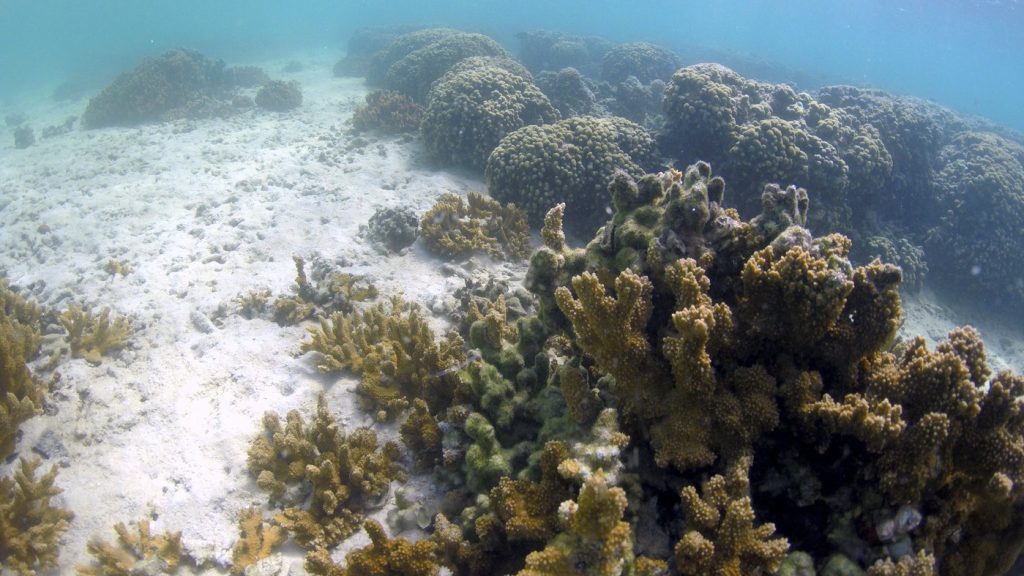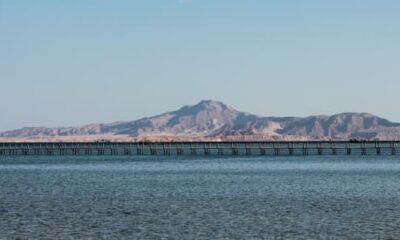World
Honolulu Advances Climate Change Lawsuit Against Oil Giants

Honolulu has taken significant legal steps against major fossil fuel companies, aiming to hold them accountable for the impacts of climate change. The city’s lawsuit, filed in 2020, argues that companies like ExxonMobil, Shell, and Chevron have long known about the harmful effects of their products but continued to profit from their consumption. As the case progresses, a crucial hearing is scheduled for March 5, 2024, which will provide insight into how these legal battles may unfold in court.
The lawsuit contends that these companies have contributed to rising greenhouse gas emissions, leading to severe consequences for the environment. It specifically cites the effects of climate change on the island of Oahu, including rising sea levels that threaten its famous coastline. Additionally, the lawsuit warns of increasing hurricanes, heatwaves, and ocean warming, which could devastate fish populations and coral reefs—key attractions for tourists.
While the lawsuit seeks an unspecified amount in damages, legal representatives for the companies have largely remained silent. A representative from ConocoPhillips stated that the company does not comment on ongoing litigation, and similar responses were received from Phillips 66.
Legal complexities arise as the defense argues for dismissal based on the expiration of the state’s two-year statute of limitations. They contend that the issues surrounding climate change have been widely discussed and documented for decades. A spokesperson for Shell emphasized that the public has long been aware of climate change, stating, “The suggestion that the plaintiffs were somehow unaware of climate change is simply not credible.”
Significance of the Upcoming Hearing
The upcoming court hearing is particularly noteworthy, as it marks a pivotal moment for Honolulu’s lawsuit, which is more advanced than approximately 30 similar lawsuits filed in various states, cities, and counties across the United States. According to Michael Gerrard, founder of the Columbia University Sabin Center for Climate Change Law, this first trial could attract significant national and global attention. Gerrard noted, “The oil companies have not yet had to take the stand and defend themselves in a trial.”
The progress of Honolulu’s case has been bolstered by the Hawaii Supreme Court’s refusal to dismiss it and the U.S. Supreme Court’s decision not to intervene. In contrast, a related lawsuit from Maui County, which faced devastating wildfires in 2022, remains on hold. The state of Hawaii itself has also filed a similar lawsuit, despite recent legal challenges from the U.S. Department of Justice regarding state-level litigation against fossil fuel companies.
Broader Implications and Expert Insights
The legal battle has gained the attention of influential figures such as Naomi Oreskes, a professor of the history of science at Harvard University. Oreskes has drawn parallels between the fossil fuel industry’s tactics and those of the tobacco industry, highlighting organized efforts to sow doubt about climate change. She stated, “The fossil fuel industry and its allies created an organized campaign to foster and sustain doubt about anthropogenic global warming.”
In a related development, a group of young activists settled a lawsuit against Hawaii’s transportation department last year, agreeing to ambitious targets for zero greenhouse gas emissions by 2045. This settlement highlights the growing urgency for action on climate-related issues in Hawaii.
As Honolulu prepares for its upcoming court hearing, the outcome could set a precedent for similar lawsuits nationwide. The legal landscape surrounding climate change accountability continues to evolve, and the implications of these cases will likely resonate beyond Hawaii, influencing public policy and corporate practices in the years to come.
-

 World3 months ago
World3 months agoScientists Unearth Ancient Antarctic Ice to Unlock Climate Secrets
-

 Entertainment3 months ago
Entertainment3 months agoTrump and McCormick to Announce $70 Billion Energy Investments
-

 Science3 months ago
Science3 months agoFour Astronauts Return to Earth After International Space Station Mission
-

 Lifestyle3 months ago
Lifestyle3 months agoTransLink Launches Food Truck Program to Boost Revenue in Vancouver
-

 Technology2 months ago
Technology2 months agoApple Notes Enhances Functionality with Markdown Support in macOS 26
-

 Top Stories1 week ago
Top Stories1 week agoUrgent Update: Fatal Crash on Highway 99 Claims Life of Pitt Meadows Man
-

 Sports3 months ago
Sports3 months agoSearch Underway for Missing Hunter Amid Hokkaido Bear Emergency
-

 Politics2 months ago
Politics2 months agoUkrainian Tennis Star Elina Svitolina Faces Death Threats Online
-

 Technology3 months ago
Technology3 months agoFrosthaven Launches Early Access on July 31, 2025
-

 Politics3 months ago
Politics3 months agoCarney Engages First Nations Leaders at Development Law Summit
-

 Entertainment3 months ago
Entertainment3 months agoCalgary Theatre Troupe Revives Magic at Winnipeg Fringe Festival
-

 Politics1 week ago
Politics1 week agoShutdown Reflects Democratic Struggles Amid Economic Concerns





















